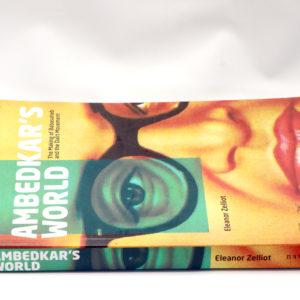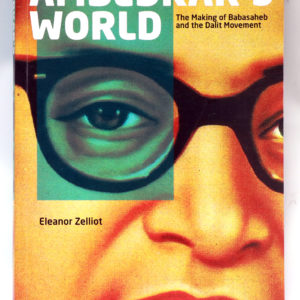Kingdom’s End: Selected Stories | Saadat Hasan Manto
₨ 638.40
This collection brings together some of Manto’s finest stories, ranging from his chilling recounting of the horrors of Partition to his portrayal of the underworld. Writing with great feeling and empathy about the fallen and the rejects of society, Manto the supreme humanist shows how the essential goodness of people does not die even in the face of unimaginable suffering. Powerful and deeply moving, these stories remain as relevant today as they were first published more than half a century ago.
- Categories: Books, Fiction
- Tags: Kingdom's End: Selected Stories, Leftshop, leftshopnepal, radical readings, rare books, rare readings, red books, Saadat Hasan Manto
The most widely read and the most translated writer in Urdu. Saadat Hasan Manto (1912-1955) is also the most controversial: he was tried for obscenity no less than six times, both before and after the departure of the British from India in 1947. In a writing career spanning over two decades, Manto, one of Urdu’s great stylists, produced a powerful and original body of work including short stories, a novel, radio plays, essays and film scripts.
This collection brings together some of Manto’s finest stories, ranging from his chilling recounting of the horrors of Partition to his portrayal of the underworld. Writing with great feeling and empathy about the fallen and the rejects of society, Manto the supreme humanist shows how the essential goodness of people does not die even in the face of unimaginable suffering. Powerful and deeply moving, these stories remain as relevant today as they were first published more than half a century ago.
Related products
The Making of Babasaheb and the Dalit Movement
Choudhury, here, reignites the debate over the appropriation of Ambedkar. Amidst rising echoes for Ambedkar-Marx, Ambedkar-Marx-Bhagat Singh, Ambedkar-Marx-Gandhi-Bhagat Singh, he provocatively asks us to think of Ambedkar’s singular exceptionality—from an excerpt in Indian Cultural Forum
What is most interesting about this difficult but beautiful book is that it is committed to the task of exposing the naked antagonisms that snake across the cracked surfaces of these oppressive structures. —Scroll.in
Nowadays when Ambedkar scholarship has become an industry, Choudhury’s thesis approaches him from an entirely new perspective.—The Telegraph
Trotsky’s theory of the permanent revolution is one of the most important additions to the arsenal of marxism. It was first developed by Trotsky in 1904, on the eve of the first Russian Revolution. At that time, all the tendencies of the Russian Social Democracy had the perspective of a bourgeois democratic revolution. Trotsky alone in 1905 put forward the idea that the Russian working class could come to power before the workers of Western Europe. The correctness of Trotsky’s theory was brilliantly demonstrated in 1917, when the Bolshevik Party under Lenin and Trotsky led the Russian proletariat to power in the first workers state in the world.
However, after the death of Lenin in 1924, the theory of the permanent revolution was subject to a vitriolic onslaught by the stalinist bureaucracy, which had in effect renounced world revolution in favour of “socialism in one country”. The attack on the theory came to epitomise the struggle against “Trotskyism”. Today, however, with the collapse of Stalinism (and with it “socialism in one country”), Trotsky’s theory of the permanent revolution has become more relevant than ever.
Publisher : Aakar Publications
The Ambedkar Cartoons, 1932–1956
Unnamati Syama Sundar with a Foreword by Suraj Yengde
This history like no other asks you to consider what you are laughing at.
In 2012, the inclusion of a 1949 cartoon by Shankar showing Jawaharlal Nehru whipping a snail-borne B.R. Ambedkar in a school textbook, evoked dalit protest, and a savarna counter on the grounds of artistic freedom. Scholar and cartoonist Unnamati Syama Sundar then undertook an archival survey of cartoons on Ambedkar in the English language press. The result, a collection of over a hundred cartoons from India’s leading publications, drawn by Shankar, Enver Ahmed and R.K. Laxman, among others, lays bare the perverse and thoughtless hostility Ambedkar often contended with. The incisional commentary woven around each cartoon offers a veritable biography of a man historically wronged.
Unnamati Syama Sundar grew up in Vijayawada on a diet of Calvin and Hobbes, Dennis the Menace, Chacha Chaudhary and Amar Chitra Katha. He is doing his doctoral research at Jawaharlal Nehru University on the art featured in Chandamama, the popular Telugu children’s magazine founded in 1947. Syama Sundar is well-known for his Ambedkarite cartoons in the non-savarna social media world. His work is featured regularly on the website roundtableindia.co.in.







Reviews
There are no reviews yet.